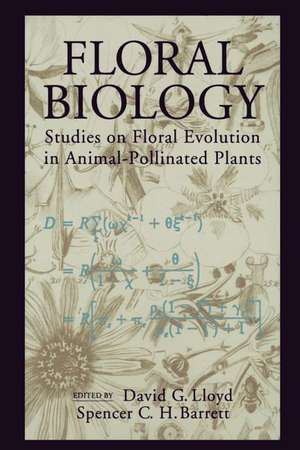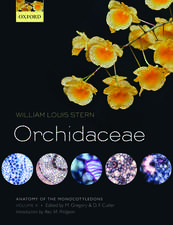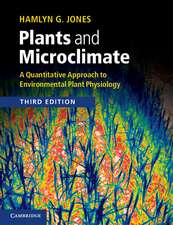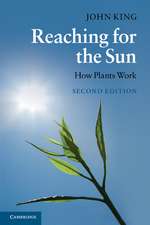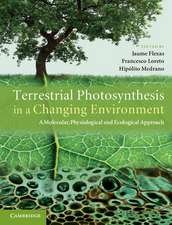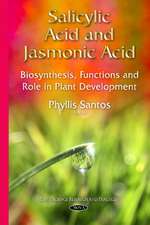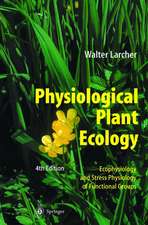Floral Biology: Studies on Floral Evolution in Animal-Pollinated Plants
Autor David G. Lloyd, Spencer C. H. Barretten Limba Engleză Paperback – 15 sep 2011
| Toate formatele și edițiile | Preț | Express |
|---|---|---|
| Paperback (1) | 1222.94 lei 6-8 săpt. | |
| Springer Us – 15 sep 2011 | 1222.94 lei 6-8 săpt. | |
| Hardback (1) | 1227.21 lei 6-8 săpt. | |
| Springer Us – 31 dec 1995 | 1227.21 lei 6-8 săpt. |
Preț: 1222.94 lei
Preț vechi: 1491.38 lei
-18% Nou
Puncte Express: 1834
Preț estimativ în valută:
234.01€ • 241.42$ • 195.28£
234.01€ • 241.42$ • 195.28£
Carte tipărită la comandă
Livrare economică 27 martie-10 aprilie
Preluare comenzi: 021 569.72.76
Specificații
ISBN-13: 9781461284949
ISBN-10: 1461284945
Pagini: 428
Ilustrații: XIV, 410 p.
Dimensiuni: 155 x 235 x 22 mm
Greutate: 0.59 kg
Ediția:Softcover reprint of the original 1st ed. 1996
Editura: Springer Us
Colecția Springer
Locul publicării:New York, NY, United States
ISBN-10: 1461284945
Pagini: 428
Ilustrații: XIV, 410 p.
Dimensiuni: 155 x 235 x 22 mm
Greutate: 0.59 kg
Ediția:Softcover reprint of the original 1st ed. 1996
Editura: Springer Us
Colecția Springer
Locul publicării:New York, NY, United States
Public țintă
ResearchCuprins
1: Historical Perspective.- 1. Discovery of the Secret of Nature in the Structure and Fertilization of Flowers.- 2. Christian Konrad Sprengel’s Theory of the Flower: The Cradle of Floral Ecology.- 2: Conceptual Issues.- 3. Floral Traits and Plant Adaptation to Insect Pollinators: A Devil’s Advocate Approach.- 4. How Do Flowers Diverge?.- 5. Floral Longevity: Fitness Consequences and Resource Costs.- 6. Pollen Dispersal and Mating Patterns in Animal-Pollinated Plants.- 7. The Ecology of Geitonogamous Pollination.- 8. Flower Size Dimorphism in Plants with Unisexual Flowers.- 3: Model Systems.- 9. Evolution of Floral Morphology and Function: An Integrative Approach to Adaptation, Constraint, and Compromise in Dalechampia (Euphorbiaceae).- 10. The Evolution of Floral Form: Insights from an Alpine Wildflower, Polemonium viscosum (Polemoniaceae).- 11. Deceit Pollination in the Monoecious, Neotropical Herb Begonia oaxacana (Begoniaceae).- 12. Reproductive Success and Gender Variation in Deceit-Pollinated Orchids.- 13. Stylar Polymorphisms and the Evolution of Heterostyly in Narcissus (Amaryllidaceae).- 14. Evolution of Campanula Flowers in Relation to Insect Pollinators on Islands.- Taxonomic Index.
Recenzii
The acquisition of data on pollination biology dates back to the work of Sprengel. This book was conceived in his honour: some of his work is reprinted as the first chapter, and reviewed in historical context in the second. - Trends in Plant Sciences; The acquisition of data on pollination biology dates back to the work of Sprengel. This book was conceived in his honour: some of his work is reprinted as the first chapter, and reviewed in historical context in the second. - Trends in Plant Sciences
